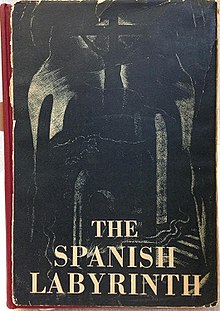
Raymond Henry Williams was a Welsh socialist writer, academic, novelist and critic influential within the New Left and in wider culture. His writings on politics, culture, the media and literature contributed to the Marxist critique of culture and the arts. Some 750,000 copies of his books were sold in UK editions alone, and there are many translations available. His work laid foundations for the field of cultural studies and cultural materialism.
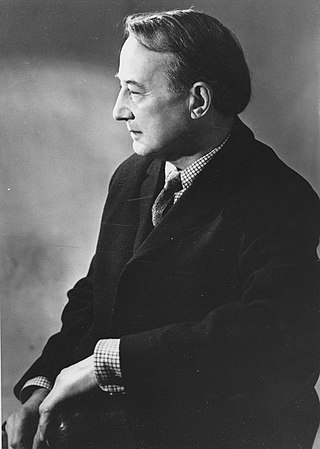
Michael Joseph Oakeshott FBA was an English philosopher and political theorist who wrote on the philosophies of history, religion, aesthetics, education, and law.

Alejandro Lerroux García was a Spanish politician who was the leader of the Radical Republican Party. He served as Prime Minister three times from 1933 to 1935 and held several cabinet posts as well. A highly charismatic politician, he was distinguished by his demagogical and populist political style.
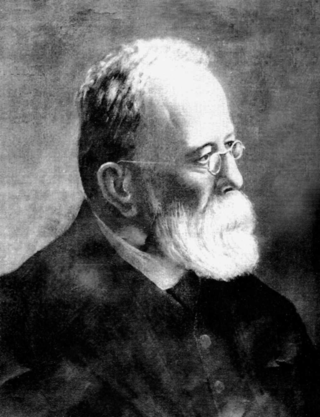
Anselmo Lorenzo Asperilla was a defining figure in the early Spanish Anarchist movement, earning the often quoted sobriquet "the grandfather of Spanish anarchism," in the words of Murray Bookchin: "his contribution to the spread of Anarchist ideas in Barcelona and Andalusia over the decades was enormous".

The Spanish transition to democracy, known in Spain as la Transición or la Transición española, is a period of modern Spanish history encompassing the regime change that moved from the Francoist dictatorship to the consolidation of a parliamentary system, in the form of constitutional monarchy under Juan Carlos I.
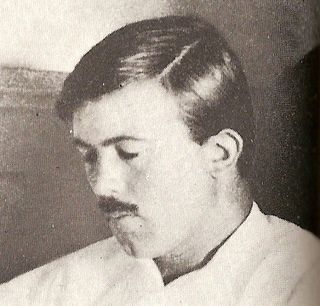
Edward FitzGerald "Gerald" Brenan, CBE, MC was a British writer and hispanist who spent much of his life in Spain.
Gamel Woolsey was an American poet, novelist and translator.

The Spanish Republic, commonly known as the Second Spanish Republic, was the form of government in Spain from 1931 to 1939. The Republic was proclaimed on 14 April 1931 after the deposition of King Alfonso XIII. It was dissolved on 1 April 1939 after surrendering in the Spanish Civil War to the Nationalists led by General Francisco Franco.

Legislative elections were held in Spain on 16 February 1936. At stake were all 473 seats in the unicameral Cortes Generales. The winners of the 1936 elections were the Popular Front, a left-wing coalition of the Spanish Socialist Workers' Party (PSOE), Republican Left (Spain) (IR), Esquerra Republicana de Catalunya (ERC), Republican Union (UR), Communist Party of Spain (PCE), Acció Catalana (AC), and other parties. Their coalition commanded a narrow lead over the divided opposition in terms of the popular vote, but a significant lead over the main opposition party, Spanish Confederation of the Autonomous Right (CEDA), in terms of seats. The election had been prompted by a collapse of a government led by Alejandro Lerroux, and his Radical Republican Party. Manuel Azaña would replace Manuel Portela Valladares, caretaker, as prime minister.
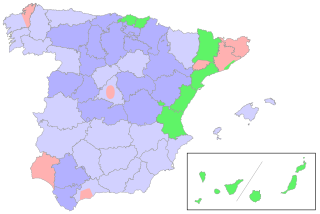
Elections to Spain's legislature, the Cortes Generales, were held on 19 November 1933 for all 473 seats in the unicameral Cortes of the Second Spanish Republic. Since the previous elections of 1931, a new constitution had been ratified, and the franchise extended to more than six million women. The governing Republican-Socialist coalition had fallen apart, with the Radical Republican Party beginning to support a newly united political right.
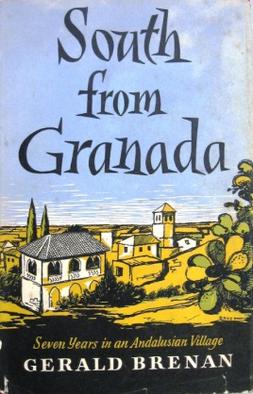
South from Granada: Seven Years in an Andalusian Village is an autobiographical book by Gerald Brenan, first published in 1957.

Válor is a municipality located in the province of Granada, Spain. According to the 2005 census (INE), the town (pueblo) has a population of 736 inhabitants.
Sir Albert Raymond Maillard Carr was an English historian specialising in the history of Spain, Latin America, and Sweden. From 1968 to 1987, he was Warden of St Antony's College, Oxford.

The sociology of literature is a subfield of the sociology of culture. It studies the social production of literature and its social implications. A notable example is Pierre Bourdieu's 1992 Les Règles de L'Art: Genèse et Structure du Champ Littéraire, translated by Susan Emanuel as Rules of Art: Genesis and Structure of the Literary Field (1996).

The Spanish Civil War was a military conflict fought from 1936 to 1939 between the Republicans and the Nationalists. Republicans were loyal to the left-leaning Popular Front government of the Second Spanish Republic, and consisted of various socialist, communist, separatist, anarchist, and republican parties, some of which had opposed the government in the pre-war period. The opposing Nationalists were an alliance of Falangists, monarchists, conservatives, and traditionalists led by a military junta among whom General Francisco Franco quickly achieved a preponderant role. Due to the international political climate at the time, the war had many facets and was variously viewed as class struggle, a religious struggle, a struggle between dictatorship and republican democracy, between revolution and counterrevolution, and between fascism and communism. According to Claude Bowers, U.S. ambassador to Spain during the war, it was the "dress rehearsal" for World War II. The Nationalists won the war, which ended in early 1939, and ruled Spain until Franco's death in November 1975.
José María Gironella Pous, known in Catalan as Josep Maria Gironella i Pous was a Catalonian Spanish author best known for his fictional work The Cypresses Believe in God, which was published in Spain in 1953 and translated into English in 1955 by Harriet de Onís (1899-1969), a translator who usually specialized in Latin-American fiction.

The Canadenca strike was a historic strike action in Barcelona, Catalonia, Spain, that was initiated in February 1919 by Confederación Nacional del Trabajo (CNT) and lasted over 44 days evolving into a general strike paralyzing much of the industry of Catalonia. Among its consequences was to force the Spanish government to issue the Decreto de la jornada de ocho horas de trabajo, the first law limiting the working day to eight hours. The strike originated at the principal electricity company in Barcelona, Riegos y Fuerzas del Ebro, a subsidiary of Barcelona Traction, popularly known as la Canadenca because its major shareholder was the Canadian Bank of Commerce of Toronto.
The Society of the Exterminating Angel was a possibly apocryphal Catholic group in Spain that was created to kill Spanish liberals, founded in 1821. It was revived in 1834 under the presidency of the Bishop of Osma.
Tomás González Morago (n/a-1885) was a notable Spanish anarchist. Morago, who was an engraver, was also a prominent member of the labor organization Primera Internacional in Spain. Accounts cite him as the first and greatest of the Spanish anarchist movement.
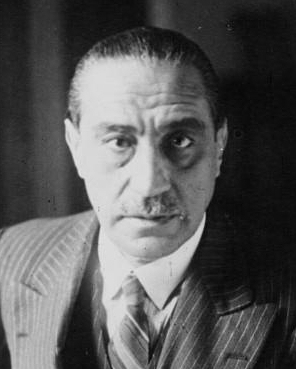
Miguel Maura Gamazo was a Spanish politician who served as the minister of interior in 1931 being the first politician to hold the post in the Second Spanish Republic. He was the founder of the Conservative Republican Party.
